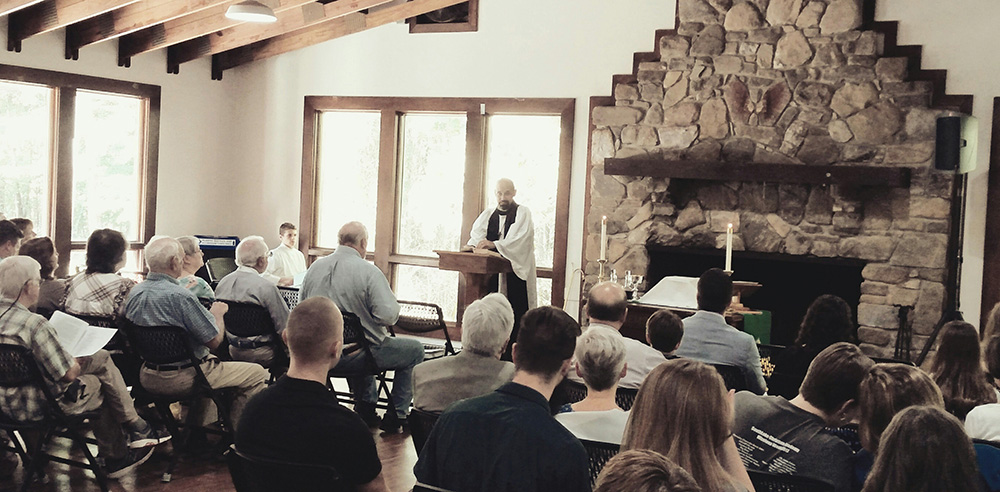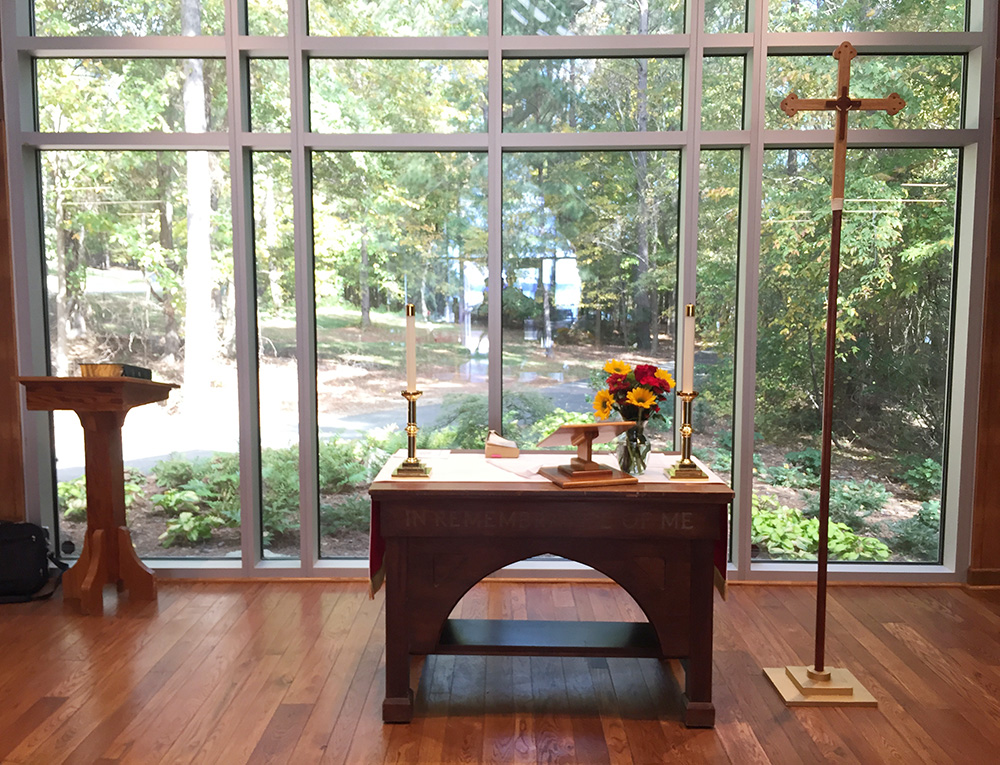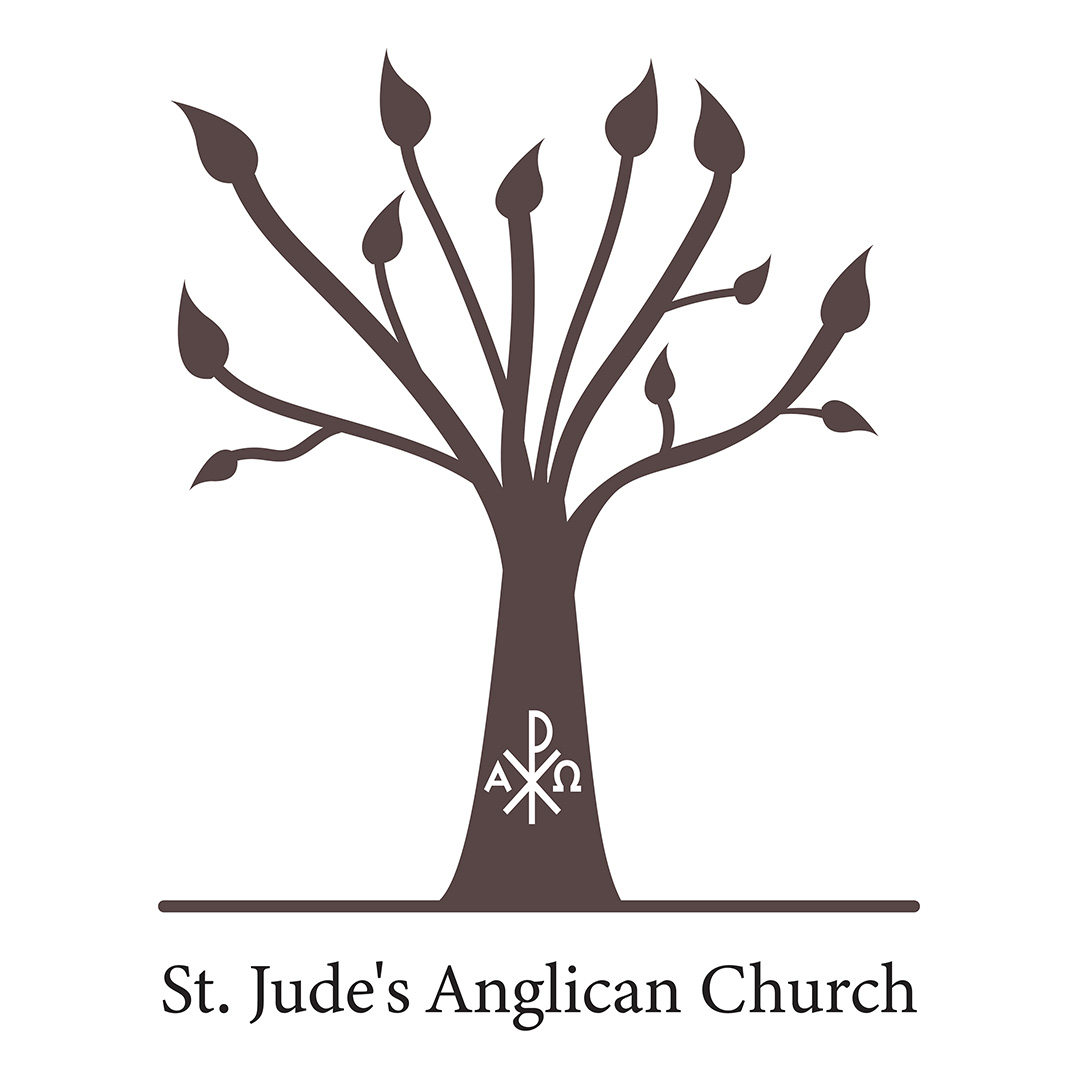Where we gather…
We meet for worship in downtown Huntersville, sharing the sanctuary of Huntersville ARP Church:
200 N Old Statesville Rd, Huntersville NC
Worship on the Lord’s Day at St Jude’s
9:00am – Study on the The Book of Exodus (Online Only)
4:15pm – Holy Eucharist @ HARP

What we do
The Anglican Church is a liturgical Church. What is a liturgical life and why is it important? Liturgy in the modern world is akin to patterns and traditions adopted by people in a specific place and time. Think of the prestige of a college football stadium; pregame tailgating and pep rallies, chants, colors and fight songs are all part of the experience. To be a fan is to support your team by attending games, buying and displaying merchandise, cheering the good guys and booing the bad. Such is the liturgical life, the patterns of devotion, found in many sports fans.
Or consider the liturgy of a nation. We sing our National Anthem, cherish our flag, support those who defend our freedoms and memorialize remarkable contributors to our country’s prosperity with national holidays such as July 4 th , Presidents Day, Veterans Day, Memorial Day, Martin Luther King Jr. Day, etc. This is the liturgical life of a citizen of the United States.

Perhaps these examples make sense of the ancient meaning of the word ‘liturgy’. Liturgy meant the work of the people (“Leitos,” Greek for people, and “ergos,” Greek for work). In the Church, liturgy is not just participation but the holy work of those recipients of God’s mercy and grace to us in Jesus Christ, our Lord! And we are eager to give it. Liturgy helps us retell the story of God’s work in the world. Certain seasons and Sundays of the year have more significance than others because they remember remarkable events such as the Incarnation, the Birth of Jesus, or the Death, Resurrection and Ascension of Jesus.
Our weekly service also follows a liturgy. This is where the Book of Common Prayer enters the conversation. If you have studied the Protestant Reformation you will notice that the rediscovery of the Christian faith according to the Scriptures led to the publication of confessions. These confessions and catechisms are the fruit of the Church working toward right belief (orthodoxy) that in turn leads to right living (orthopraxy). You may have heard of the Westminster Confession of Faith, John Calvin’s “Institutes of Christian Religion”, the Heidelberg Catechism, the 1689 Baptist Confession of Faith, the Augsburg Confession and many others. Yet the primary work in the Church of England was not a Confession, but a Book of Common Prayer. Upholding the universal creeds of the early Church (Apostles, Nicene and Athanasian), the Church of England settled on 39 Articles of Religion as a basic theological framework that enables and encourages common worship in the Book of Common Prayer.
The Book of Common Prayer is the Bible organized for worship. Accordingly, it has been said that Anglicans pray what they believe. The daily office is patterned after the ‘hours of prayer’ (Acts 3:1); morning, noon and evening prayer with compline at the end of the day. Lectionaries, schedules for reading the Bible, encourage daily Bible reading throughout the week with a separate lectionary for worship on the Lord’s Day that emphasize the liturgical calendar.
When you come to worship at St Jude’s you will receive a bulletin. Until we purchase prayer books for everyone, we print the corresponding liturgy for public worship. Encouraging congregational participation, we sing from a hymnal. We are even learning simple forms of chant so that we can sing passages from the Bible without forcing words into a metered hymn. This is new to many of us! And for some it has been a refreshing change from consumeristic Christianity.
